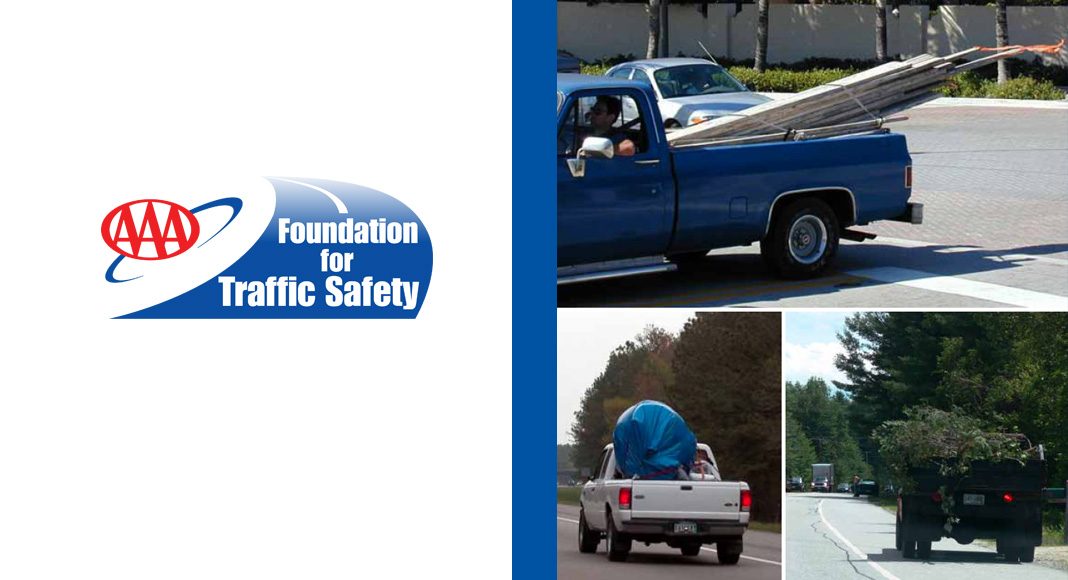More than 200,000 crashes involved debris on U.S. roadways during the past four years, according to a new study released by the AAA Foundation for Traffic Safety. Between 2011 and 2014 these crashes resulted in approximately 39,000 injuries and more than 500 deaths.
The AAA is now calling for drivers to properly secure their loads to prevent dangerous debris.
AAA researchers examined common characteristics of crashes involving road debris and found that:
- Nearly 37 per cent of all deaths in road debris crashes resulted from the driver swerving to avoid hitting an object. Overcorrecting at the last minute to avoid debris can increase a driver’s risk of losing control of their vehicle and make a bad situation worse.
- More than one in three crashes involving debris occur between 10:00 a.m. and 3:59 p.m., a time when many people are on the road hauling or moving heavy items like furniture or construction equipment.
- Debris-related crashes are much more likely to occur on Interstate highways. Driving at high speeds increases the risk for vehicle parts to become detached or cargo to fall onto the roadway.
‚ÄúThis new report shows that road debris can be extremely dangerous but all of these crashes are preventable,‚ÄĚ said Jurek Grabowski, research director for the AAA Foundation for Traffic Safety.
‚ÄúDrivers can easily save lives and prevent injuries by securing their loads and taking other simple precautions to prevent items from falling off the vehicle.‚ÄĚ
About two-thirds of debris-related crashes are the result of items falling from a vehicle due to improper maintenance and unsecured loads. The most common types of vehicle debris are:
- Parts becoming detached from a vehicle (tires, wheels, etc.) and falling onto the roadway
- Unsecured cargo like furniture, appliances and other items falling onto the roadway
- Tow trailers becoming separated and hitting another vehicle or landing on the roadway
Drivers can decrease their chances of being involved in a road debris crash by:
Maintaining Their Vehicles:
Drivers should have their vehicles checked regularly by trained mechanics. Badly worn or underinflated tires often suffer blowouts that can leave pieces of tire on the roadway. Exhaust systems and the hardware that attach to the vehicle can also rust and corrode, causing mufflers and other parts to drag and eventually break loose. Potential tire and exhaust system problems can easily be spotted by trained mechanics as part of the routine maintenance performed during every oil change.
Securing Vehicle Loads: When moving or towing furniture, it is important to make sure all items are secured. To properly secure a load, drivers should:
- Tie down load with rope, netting or straps
- Tie large objects directly to the vehicle or trailer
- Cover the entire load with a sturdy tarp or netting
- Not overload the vehicle
- Always double check load to make sure a load is secure
‚ÄúDrivers have a much bigger responsibility when it comes to preventing debris on the roads than most realize,‚ÄĚ said Jennifer Ryan, director of state relations for AAA. ‚ÄúIt‚Äôs important for drivers to know that many states have hefty fines and penalties for drivers who drop items from their vehicle onto the roadway, and in some cases states impose jail time.‚ÄĚ
AAA recommends that drivers avoid tailgating and remain alert while on the road. Additional tips on defensive driving and how to report road debris to the proper authorities are available online at AAA.com/PreventRoadDebris.
Read the full report: AAA Foundation for Traffic Safety Report: The Prevalence of Motor Vehicle Crashes Involving Road Debris



















